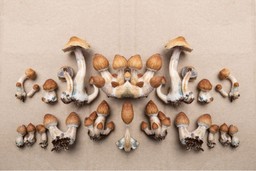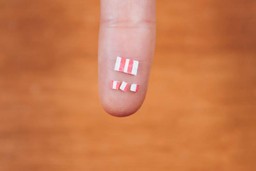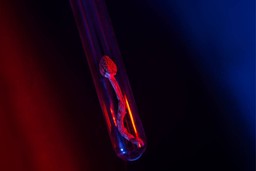Microdosing psychedelics has gained popularity in the last several years. Some claim they’ve eased their anxiety and depression through these sub-hallucinogenic doses. Few clinical trials have studied outcomes, but recent research has shed more light on this popular trend. Let’s talk about where the research stands on microdosing psychedelics.
Psychedelics like psilocybin and LSD have captured attention as treatments for depression, anxiety, substance dependency, and more. Psychedelic therapy is experiential medicine, meaning people gain knowledge through their psychedelic experience. Integration therapy afterward helps patients understand their new perspectives and apply them in the future.
But what if we took the psychedelic experience out of this equation? Microdosing involves taking sub-hallucinogenic doses. Can people still experience the benefits of psilocybin and LSD without actually “tripping?”
Microdosing may be a way for psychedelics to help patients who fear the loss of control inherent in entheogenic medicine. And it’s already gaining popularity.
Follow your Curiosity
Sign up to receive our free psychedelic courses, 45 page eBook, and special offers delivered to your inbox.The prevalence of microdosing psychedelics is challenging to measure. Increasing popularity on Reddit and other social media sites leads us to believe more people are delving into the phenomenon. Its benefits have been supported on podcasts and youtube channels, leading many people to think it’s a risk-free treatment. But let’s talk about what the data says.
Psychedelic Support is the leading evidence-based platform for psychedelic therapy education. We help therapists and other mental health professionals gain fresh and accurate insight in order to drive evidence-based treatments. We also connect people with psychedelic providers and integration therapists. There’s more than one way to participate in the psychedelic medicine revolution. Learn how you can get involved here.
If you’re interested in microdosing psychedelics, you may have heard positive anecdotes from friends and the internet, however you should also be equipped with hard data to protect yourself and your community. Let’s talk about existing knowledge on the most popular substances for microdosing: psilocybin and LSD.
Microdosing Mushrooms Clinical Trials
The most popularly discussed substance for microdosing is psilocybin. There are over 200 mushroom species containing this compound. Controlling dosage across these variations is challenging, especially when dosing on the micro level. Still, through initial research and trials, there’s evidence for microdosing psilocybin mushrooms. Results have generally been positive but small. Let’s discuss these studies.
Psilocybin Microdosers Demonstrate Greater Observed Improvements in Mood and Mental Health at One Month Relative to Non-Microdosing Controls (2022)
This year, the largest longitudinal study on microdosing psilocybin found improved mental health compared to control groups. After a month of microdosing, participants’ depression symptoms reduced from moderate to mild.
On the other hand, this study refutes other claims about improved cognitive function and focus. Researchers found no impact on processing speed and memory. Little research has been done on whether microdosed psilocybin could have effects on these aspects, but the psychomotor performance did improve in the microdosing group for adults aged 55 or older, as measured through finger-tap testing1.
Microdosing With Psilocybin Mushrooms: a Double-Blind Placebo-Controlled Study (2022)
This was the first double-blind study to research microdosing psilocybin. 34 participants used self-reported assessment, completed tasks, and were examined via EEG while microdosing. Researchers investigated the effects of 0.5g of mushrooms on these dimensions2:
- Creativity (no change)
- Mental health and well-being (no change)
- Cognition (no change to impairment in some tasks)
- Brain Activity (decreases in theta waves, consistent with higher psilocybin doses)
These results were more measured than others. They dispute the anecdotal support for microdosing psilocybin. The double-blind nature of this research may reveal the bias that plays into people’s positive reports on microdosing. We need more double-blind studies on psilocybin microdosing to make accurate conclusions.
Psst… want to get involved in a clinical trial? Check out our guide.
Microdosing LSD Clinical Trials
Albert Hoffman, who synthesized LSD, first proposed that low doses could impact mental health. He even suggested that it could be an alternative to Ritalin. Yet clinical trials on microdosing LSD have been more varied. Most of the research we’ve seen so far has been through self-reported surveys, not clinical trials. See the evidence here:
Might Microdosing Psychedelics Be Safe and Beneficial? An Initial Exploration (2019)
One study followed 1000+ people from 59 countries over 18 months. Researchers concluded that ten micrograms every three days was a safe dose across patient populations.
Participants completed daily assessments of their negative and positive emotional states. Based on these assessments, people who used repeated microdoses saw improved mood, increased energy, better effectiveness at work, and better health habits.
Within this group, smaller samples also reported improved migraine headaches, symptoms of TBIs, shingles, and other conditions that aren’t associated with psychedelics. The wide range of these improvements may suggest promising areas for future research, some placebo effect, or causation-correlation issues3.
MDLSD: Study Protocol for a Randomised, Double-Masked, Placebo-Controlled Trial of Repeated Microdoses of LSD in Healthy Volunteers
This randomized, double-blind trial will include 80 participants using either 10 micrograms of LSD or a placebo. While results have yet to be published, this trial will be the most advanced research on LSD microdosing4. We’re looking forward to more research into this fascinating area.
Want to learn more about the latest clinical trials in psychedelic medicine? Check out our 2022 Late-Stage Clinical Trial Guide.
Microdosing Psychedelics for Anxiety and Depression
The research on microdosing for anxiety and depression is encouraging. But based on the evidence we have for microdosing psychedelics, we can’t yet recommend this strategy as a treatment for anxiety and depression. The evidence we have isn’t strong enough and the lack of standardization in dosage makes it difficult to define recommendations.
In self-reported surveys, people who microdose report a wide range of motivations. They note reductions in anxiety and depression, better overall well-being, and better cognitive performance. Other motivations include better physical health, spirituality, curiosity, and empathy5. So while controlled trials are limited, it’s clear that people are finding mental health benefits from microdosing.
A 2021 study comparing microdosers and non-microdosers found that the first group had lower levels of depression, anxiety, and stress. People who microdosed also had more motivation related to health and wellness habits6. Microdosing may contribute to these improvements.
Some experts suggest that microdosing psilocybin could help people as they wean off SSRIs. Anecdotal reports of this practice are promising. There are still no large-scale studies to draw recommendations from, but providers may use their own experiences and judgment to guide patient care.
Even though evidence on microdosing is mixed, many people are interested in trying it for their mental health. Here’s what you should know to have a good experience.
Follow your Curiosity
Sign up to receive our free psychedelic courses, 45 page eBook, and special offers delivered to your inbox.Microdosing Psychedelics Safely
Despite somewhat ambiguous evidence, microdosing is on the rise. If you’re interested in trying it for yourself, you should know how to protect yourself and your friends. Check out these safety guidelines for microdosing psilocybin and LSD:
- Understand how your medications may interact with psychedelic substances. If you’re microdosing regularly, tell your doctor. This may affect your medication regimens, especially if you are on antidepressants.
- Know the recommendations. The most popular dosing schedule includes one day of microdosing, followed by at least two days without microdosing.2
- Know your (micro)dose. People who intend to microdose may take too much and end up not having the experience they want. Psilocybin microdoses range from 0.1g to 0.5g of dried mushroom. LSD is much more potent, with microdoses roughly at 4.6 micrograms.2
- Know that there may be risks. Since we have so little evidence about microdosing for mental health concerns, we still aren’t aware of the risks and how to avoid them. One potential risk of long-term psilocybin microdosing is heart valve problems. This is caused by repeated activation of serotonin 2B receptors on the heart, as demonstrated in some medications like the diet medication fen-phen that was pulled from the market. There has not been evidence for this for psilocybin in trials or any known user reports, but more long-term research is warranted.
- Be aware of quality. Since neither LSD or psilocybin is available through regulated supplies, there is the possibility for contaminants or presence of other drugs.
Microdosing is generally considered safe. With more research, we’ll be able to make better recommendations for safety and efficacy.
Key Takeaways on Microdosing Psychedelics
When it comes to outcomes, the evidence for microdosing is a mixed bag so far. But anecdotal reports are encouraging. For many, these stories are what led them to try psychedelics. We don’t want to discourage you from a journey of self-exploration. We just want you to know the facts to make the best decision for yourself.
Are you a therapist wanting to expand your knowledge and your practice? Psychedelic therapy can help your clients experience better outcomes and set you apart from your peers. Psychedelic Support helps providers like you get certified to offer integration therapy. The next training program starts in January 2023, offered through the Integrative Psychiatry Institute. Learn more about this exciting program here.
References
- Rootman, J.M., Kiraga, M., Kryskow, P. et al. Psilocybin microdosers demonstrate greater observed improvements in mood and mental health at one month relative to non-microdosing controls. Sci Rep 12, 11091 (2022). https://doi.org/10.1038/s41598-022-14512-3
- Cavanna, F., Muller, S., de la Fuente, L.A. et al. Microdosing with psilocybin mushrooms: a double-blind placebo-controlled study. Transl Psychiatry 12, 307 (2022). https://doi.org/10.1038/s41398-022-02039-0
- Fadiman J, Korb S. Might Microdosing Psychedelics Be Safe and Beneficial? An Initial Exploration. J Psychoactive Drugs. 2019 Apr-Jun;51(2):118-122. doi: 10.1080/02791072.2019.1593561. Epub 2019 Mar 29. PMID: 30925850.
- Murphy, R.J., Sumner, R.L., Evans, W. et al. MDLSD: study protocol for a randomised, double-masked, placebo-controlled trial of repeated microdoses of LSD in healthy volunteers. Trials 22, 302 (2021). https://doi.org/10.1186/s13063-021-05243-3
- ea T, Amada N, Jungaberle H, Schecke H, Scherbaum N, Klein M. Perceived outcomes of psychedelic microdosing as self-managed therapies for mental and substance use disorders. Psychopharmacology (Berl). 2020 May;237(5):1521-1532. doi: 10.1007/s00213-020-05477-0. Epub 2020 Feb 11. PMID: 32043165.
- Rootman, J.M., Kryskow, P., Harvey, K. et al. Adults who microdose psychedelics report health related motivations and lower levels of anxiety and depression compared to non-microdosers. Sci Rep 11, 22479 (2021). https://doi.org/10.1038/s41598-021-01811-4









